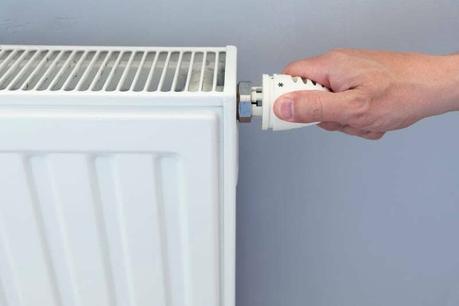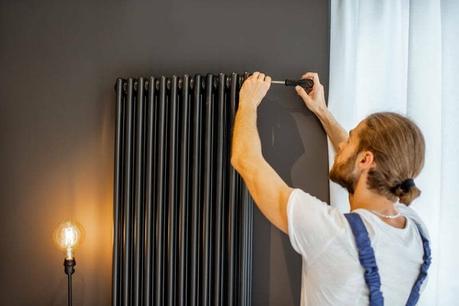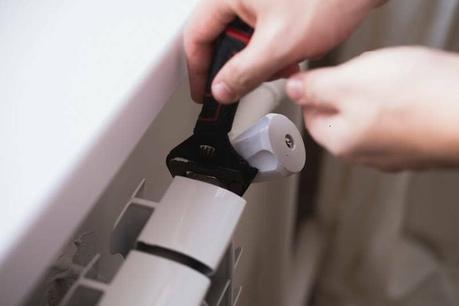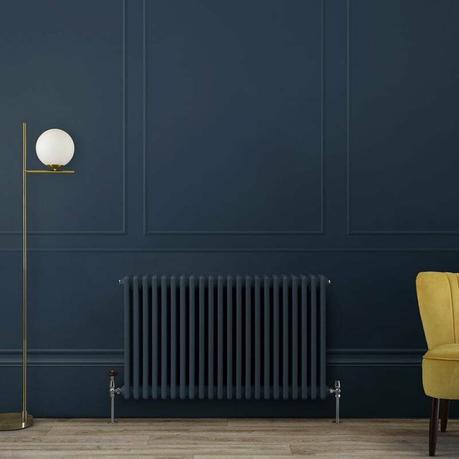My radiators need bleeding regularly – what’s the problem?
As UK heating problems go, one of the most commonly reported issues stems from home radiators repeatedly filling with air.
Bleeding radiators can be a faffy old job, and if you’ve had to repeat the process for a little while, you could be forgiven for looking at your radiators like Roy Keane does a post-match Instagram apology post. Particularly so if you can’t work out what the problem is.
In reality, there’s a number of reasons that can be attributed to radiators filling with air, some of which that can be combated with minimal fuss, and others that would require professional assistance to solve.
So, why do your radiators fill with air? This article will explore the potential causes for the inconvenience, and touch upon what measures can be taken so you can stop bleeding more than a classic Wes Craven scene.

How can I tell if my radiator is filled with air?
Although radiators with trapped air will not usually be susceptible to damage, they will not operate in as efficient a manner as they should. Basically, the radiators won’t work to their full potential, and despite this, will use a lot more energy than usual to provide any warmth at all.
But how can you tell if your radiators are filled with air?
Noisy radiators
Noise emerging from radiators could indicate that they are filled with trapped air. Bubbling or hissing sounds can stem from pipework as water attempts to make its way beyond the trapped air to heat up the radiators. Vibrations and creaking noises are other audible tell-tale signs that radiators could contain trapped air and require bleeding.
Radiators cold at the top
Taking caution with a scalding risk in mind, a radiator touch test can be performed to work out whether or not trapped air is infiltrating your heating appliances. Should it be that the foot of the radiator is the only area that heats up, and the devices get gradually cooler up towards the top, it is likely the radiators are filled with air, and you’ll need to get familiar with how to bleed a radiator.
Why do my radiators keep filling with air?

As alluded to, the prospect of bleeding a radiator multiple times is far from appealing, so the sooner you can identify why your radiators are repeatedly filling with air, much the better.
Often, despite the fact that it is the device itself that is trapping air, the issue actually arises as a result of trouble with a boiler or central heating system that transports water to the hot water radiators.
So you can stop staring at your stunning designer radiators with such disdain.
Boiler troubles can be caused by a range of factors including pipe blockages, low water pressures or a leaky seal at the foot of the pump.
Low water pressure
In all likelihood, the most common cause of a radiator frequently filling with air on the regular is low water pressure.
As detailed in our full guide, water should emerge from your radiators during the bleeding process – it would be wrong to assume the job is done once the hissing sound halts. You should check the pressure on the system after bleeding if water does appear, with a reading in the region of .1 bar or moderately higher being the goal.
If no water exits the radiator, that signifies an improper bleeding practice and provides an almost definite indication of a system lacking water pressure. If so, you can rectify the issue by following the instructions detailed in our help guide to re-pressurise the boiler via the filling loop.
Radiator leakage
Radiator leakages can sometimes occur as a result of air building up within the system, even if they might be a touch hard to find. A typical way to gauge the presence of a leak is if your boiler needs to be frequently re-pressurised.
It is best to seek the advice and assistance of a professional plumber if you are suspicious of a leak in your radiators or heating system.
Heat pump issues
A malfunctioning heat pump can prove a cause of radiators repeatedly filling with air, but given they are an internal component of a heating system, this sort of problem is a lot more difficult to diagnose on a DIY basis.
Should you have concerns over radiators filling with air over and over again and are struggling to decipher what is causing the trouble, a registered gas-safe engineer can be consulted to determine whether or not a heat pump could be the root cause.
Lack of maintenance
Especially if you have an outdated boiler, and one that has been poorly maintained over a number of years, the heating system could be susceptible to a congregation of hydrogen as opposed to simply air.
Hydrogen build-ups can stem from the presence of rust or oxidization – if corrosion is occurring within the boiler and rust has formed on the pipework, debris and sludge can conglomerate as water and rust combine.
A clear indicator of sludge collating is when a radiator heats up at the top but is cold at the bottom, whilst related issues are detailed in our article, Why are my radiators getting hot when the heating is off?
In order to work out whether your radiators are filling with air or hydrogen, you can perform a straightforward test with just a match, a cup, and a radiator valve key or bleed key.
First, prepare to open the radiator valves with the bleed key, and hold the cup upside down at the top of the bleed valve, opening the valve slightly until a hissing sound is audible as gas escapes.
Then, quickly close the valve and grab the match, lighting it underneath the cup.
Should you hear a small popping sound, that signifies the ignition of the gas, meaning your radiators are indeed filling with hydrogen as opposed to air.
How can I stop my radiators filling with air?

It is natural for radiators or heating systems to fill with air over the course of time, regardless of what preventative measures you take against the practice. As water heats up and cools down on repeat, air bubbles will eventually form within your heating devices, with some models better equipped at coping with the process than other designs.
So what can you do to stop your radiators filling with air time after time?
Bleed your radiators
Whilst we’ve outlined that the regular bleeding of radiators can be, for want of a better phrase, “a blag”, it is highly recommended to perform the practice at least once a year, and preferably twice or more for solid maintenance.
The optimal time to crack on with radiator bleeding is on the cusp of temperatures sharply declining, which will typically be towards the end of September or the start of October as the colder autumn and winter climes are abound. In turn, you can be confident that your radiators or heated towel rails are operating to their full capacity ahead of the seasons you’ll need them most.
If you are to decide to bleed your radiators or alternate devices again, another good time to choose is right prior to the warmer summer months of the year, so you can be assured there is no trapped air posing a risk of corrosion to the system when it is used much less frequently or not at all.
Service your central heating
Your central heating system or boiler should be subject to a service at least annually as well, again to ensure that everything from your radiators, pipework and boiler are all in tip-top shape for when you will lean on them the most. For that reason, a summer timeline would ideally be followed to commence with the ‘health check’, as detailed in our Advice Centre article, How often should I service my boiler?
This will allow you to take heed of the state of all vital heating components in your household before you probably actually require them, so time is on your side if you need to address any issues or bring your heating system up to scratch.
Radiators filling with air – What to do
In conclusion, if your radiators are regularly filling with air, a detectable problem is abound somewhere within your heating system. That could include any of the issues outlined earlier in this article – it might be that the debacle of re-pressurising your system is on the horizon, or as simple a task as clearing out dust and sludge from your home radiators.
And as aforementioned throughout, the safest and simplest means to try and prevent and avoid troubles with radiators filling with air is to perform proper maintenance techniques, bleeding and servicing your vital heating components with at least some notion of regularity.
If you are unsure as to what the problem actually is, always refer to a gas-safe engineer or qualified plumber to diagnose and treat the issue.
Get in touch with BestHeating

If you would like to know more about the causes and preventative measures that can be taken against air pockets forming in radiators, or anything else about a wealth of home heating problems and remedies, be sure to browse a plethora of articles from our Advice Centre.
And don’t hesitate to get in touch with the BestHeating team, either. You can do so by leaving your thoughts in the comments section below, or by contacting us via Instagram, Facebook or Twitter.
Got a radiator or heating question?

You can find a range of helpful answers to hundreds of common home heating questions on our FAQ pages.
Click the link or tap the image above to ask a question of your own!

